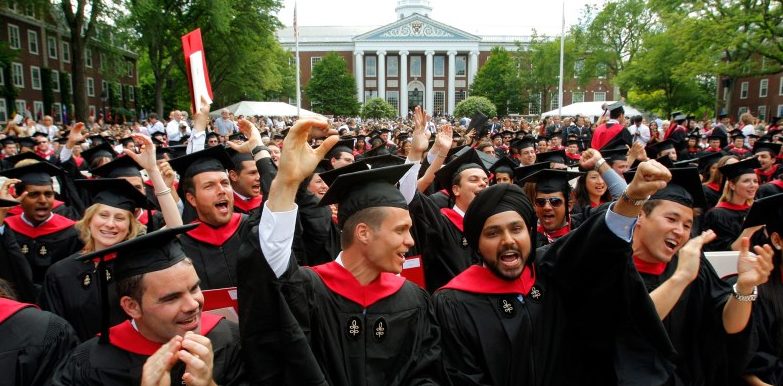As a former foster kid myself, I felt a strange combination of emotions while reading a recent story in The Chronicle of Higher Education about a student named Mackenzie Fierceton, at the University of Pennsylvania.
Fierceton apparently embellished her background in her application to the Ivy League university and, later, for a Rhodes Scholarship. Fierceton described herself as a first-generation college applicant who came from a low-income, foster-care background. The Chronicle reports that although she spent her final year of high school in foster care, the student had grown up in an affluent suburb of St. Louis with her mother, a radiologist, and attended private schools. The story detailed how in her Rhodes statement, Fierceton wrote emotionally about the turmoil that she and her foster siblings had to go through. “Now, Chandra is institutionalized for the seventh time. Darren and Will are incarcerated. Casey is terminally ill,” she writes. “Why does this keep happening to us?”
I don’t want to contest the truthfulness of Fierceton’s story. Though for what it’s worth, the University of Pennsylvania has decided to withhold her degree and she has subsequently withdrawn from the Rhodes Scholarship. Instead, I want to highlight an overlooked problem that arises as a result of college admissions offices increasingly prioritising victimhood narratives in their admissions decisions.
I was a genuine first-generation college student from a low-income background who spent years in foster care. When preparing my college essays, I wrote about my unstable childhood — if nothing else, it was a chance to explain why my grades in my high school transcript were so abysmal. I sent early drafts to people who had already managed to get into college for feedback. They urged me to add more “colour” and “creativity” to my writing. Gradually, I got the point: I couldn’t just relay what had happened in my life. I had to write about how these experiences affected me, what I did about them, and what they said about my character.
In her fascinating 2013 book Pedigree: How Elite Students Get Elite Jobs, Northwestern University Professor Lauren Rivera documented hiring practices at top-tier firms. She wrote that employers seek out compelling stories involving adversity, with “personal experiences as a series of progressive decisions driven by intrinsic motives and the pursuit of personal passion and meaning.”
In other words, the story must be propelled by the candidate. Things can’t just happen to you —you have to make things happen. Moreover, adversity isn’t enough. Elite employers want to see how such suffering reveals or cultivates desired qualities like resilience, curiosity, or empathy.
Though Professor Rivera’s book is about top firms, her observations could easily apply to top universities. Some might ask why universities don’t just select students on merit, but the fact is, Fierceton had a stellar academic record (“one B-plus in chemistry short of straight A’s” according to The Chronicle), as do most students at Ivy League colleges. Yet in today’s hyper-competitive admissions cycles, academic excellence often only gets one’s foot in the door. In 1990, the acceptance rate at Harvard was 18 percent. In 2021 it was a mere 3.43%.
And so universities have decided to focus on adversity as a way to identify talented or extraordinary applicants. But this strategy gives affluent people an advantage. Ironically, the most well-off can figure out the ways they are marginalised and communicate their supposed disadvantages more fluently. Marginalised people often have difficulty detailing their hardships in a way that affluent people can understand.
As colleges continue to ditch standardised testing requirements, victimhood narratives in college essays will further proliferate because applicants will aim to stand out amid all the undifferentiated academic excellence.
Naturally, applicants from the most affluent families will excel at this game. They already do. In fact, a recent study at Stanford found that family income is more highly correlated with admissions essay content than with SAT scores. Presumably, applicants from well-to-do backgrounds are especially adept at crafting their essays in ways that please admissions committees.
The emphasis on victimhood backfires, creating more obstacles for truly disadvantaged applicants. After all, essays are subjective and their evaluation relies on subtle class-coded markers of culture and taste. Test scores and grades, in contrast, are more objective. Embroidering stories about hardship in the “right” way is easier for affluent candidates than for those less fortunate.
If the aim of adversity narratives is to identify disadvantaged individuals and help them excel, then we should bear in mind that such individuals won’t necessarily write about their lives in ways that conform to our expectations. If someone discusses their disadvantages in an understated manner, or in ways we aren’t used to, then perhaps those are exactly the individuals we should pay more attention to. And if someone is especially adept at accentuating their marginalisation, then that person may not be as marginalised as they claim.











Join the discussion
Join like minded readers that support our journalism by becoming a paid subscriber
To join the discussion in the comments, become a paid subscriber.
Join like minded readers that support our journalism, read unlimited articles and enjoy other subscriber-only benefits.
Subscribe